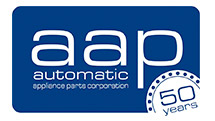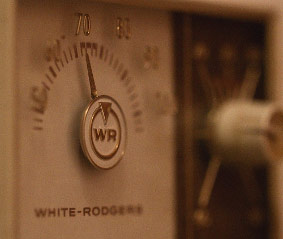The Ins and Outs of Refrigerant in Your AC
You Are Here: Home > Automatic Appliance Parts Blog > The Ins and Outs of Refrigerant in Your AC
*** Please be aware that Norridge is the only shipping facility. Inventory on-hand at all other branches is unavailable for immediate shipment. ***
Making it through the summer season is much easier when your HVAC system runs efficiently, keeping your home cool and comfortable. Air conditioning systems use refrigerants as a means to cool the air distributed throughout your home. Freon is one of the most widely used refrigerants, but it's harmful to the environment and is being phased out as of 2020. Let's explore in-depth what you need to know about refrigerant and how this could affect you in the future.
What Is Freon?
Freon, also known as R-22, HCFC-142b, and HCFC-22, has been the most common refrigerant used in residential heat pumps and air conditioning units for decades. It contains hydrochlorofluorocarbons (HCFCs), which have been deemed harmful to the environment by the Environmental Protection Agency (EPA).
When released into the air, Freon contributes to the depletion of the ozone and global warming. As of January 1, 2020, the import and production of Freon have been banned. The EPA has also prohibited the manufacture of new HVAC systems that use R-22.
Replacement Refrigerants
Freon is being replaced with R-410A, also known by trade names such as Genetron AZ-20, 410A, Suva 410A, and Puron. This refrigerant blend contains hydrofluorocarbon (HFC) and is safer for the environment than HCFC. R-410A shows no signs of harm to the ozone and has become the standard for refrigerants since 2015. Though Puron is available and already in use, older HVAC systems may not support it or be capable of converting to it.
Will You Need to Replace Your Air Conditioning System?
As of 2020, if you have an older HVAC system that still uses Freon, there is no need to panic. As long as your system runs properly without any signs of leaks, you won't be required to replace it. Though the production and import of R-22 are now prohibited, there will be a limited supply available for routine maintenance of older air conditioning systems. Once this supply is depleted, recycled Freon will need to be sourced to keep older HVAC systems in working condition.
If you intend to keep your older system, you won't just be able to switch to the new R-410A refrigerant. Your system will need to be retrofitted to accommodate Puron, which can be a rather expensive option. If such a retrofit is possible, you can keep your old system, and it might even be more efficient afterward. Another point to keep in mind is that retrofitted systems will need to have more frequently scheduled maintenance to avoid common AC issues like leaks and ensure that they continue to function at peak efficiency.
Most air conditioning systems produced after 2010 can be converted to use Puron, so you will need to ask your HVAC technician about your options and make an informed decision as you move forward. If you have an HVAC system manufactured before 2010, you may want to consider replacing it with a new system. Modern air conditioning units use technology and engineering processes designed to give you a more energy-efficient means of keeping your home cool. This can lead to lower utility bills and will be more environmentally friendly in the long run.
Regardless of your decision, the average lifespan of an HVAC system is 15 years. You can use this factor along with the cost of having an older system retrofitted, increased maintenance, and the overall cost to run the system to help you decide between retrofitting or purchasing a new unit.
How Does Your HVAC System Work?
Though you may think of your air conditioning system as a device that introduces cold air into your home, the process is just the opposite of this assumption. Your HVAC system actually moves heat from inside of your home to the outside. When you discuss these systems with an expert, you will hear them refer to your system as a heat pump, which is an accurate description.
As your heat pump works to move the heat from inside of your home to the outdoors, the process creates cold air, which then gets distributed throughout your house. The refrigerant inside your HVAC system is responsible for the temperature exchange that keeps your home cool and is referred to as the refrigeration cycle. This process is known as a thermodynamic cycle and is a series of changes in pressure, temperature, and the state of the refrigerant (liquid/vapor) as it pulls heat from your home.
Heat naturally flows from warmer to cooler, so the cold coils inside your home pull heat from your home into the refrigerant, causing it to boil and changing it from a liquid to a vapor. It then travels to the exterior coils where the pressure is increased to make the refrigerant hotter than the outside air. When this happens, the heat from the refrigerant is transferred to the outside as the heat once again flows from warmer to cooler.
As the heat leaves the refrigerant, it condenses back into a liquid. It's then pumped back to the inside coils, where it expands into a larger volume. This makes the temperature drop drastically, and then the process begins again. This is a simple explanation of how your HVAC system works to keep you cool through the summer season.
Keeping your home comfortable and cool throughout the summer is a must, and being in the know about EPA regulations will help you stay informed about the most recent changes that could affect your air conditioning system. You should also keep your system on a regular maintenance schedule to ensure it is working properly and providing the most cost-efficient service possible.
Working with your HVAC technician, you can develop a plan for how to proceed when servicing, retrofitting, or replacing your HVAC system. Just make sure to keep factors like cost, maintenance, utility savings, and environmental concerns in mind. Summer can be brutal, and if you have ever had your air conditioning system malfunction, you know what a pain it can be. If you need to replace any air conditioner parts to get your unit in proper working order, Automatic Appliance Parts Corporation has you covered.

 Shopping Cart [empty]
Shopping Cart [empty]









